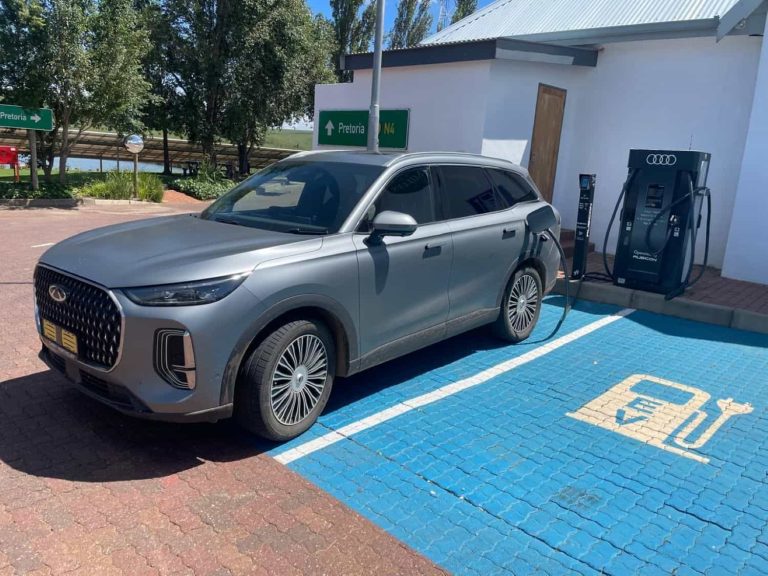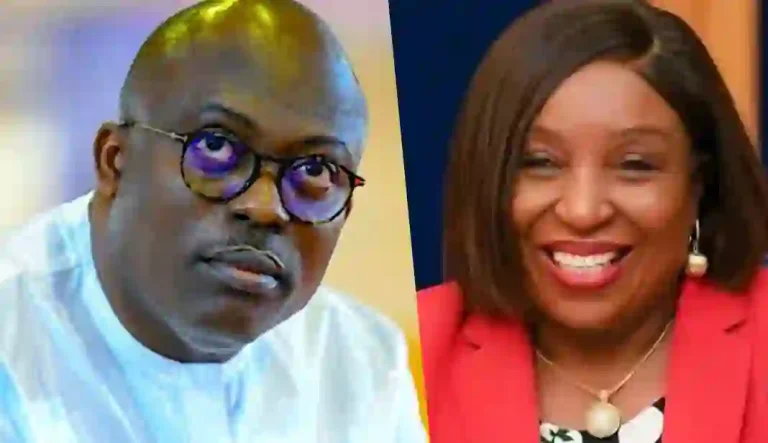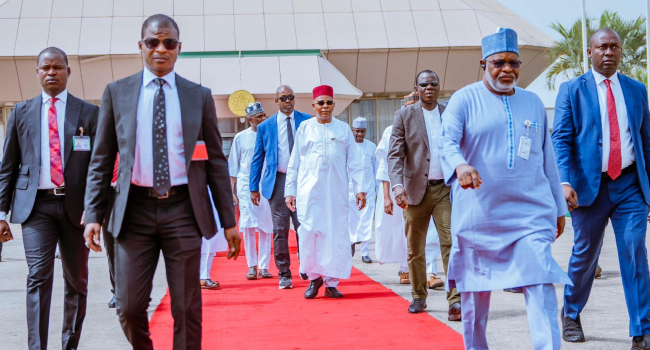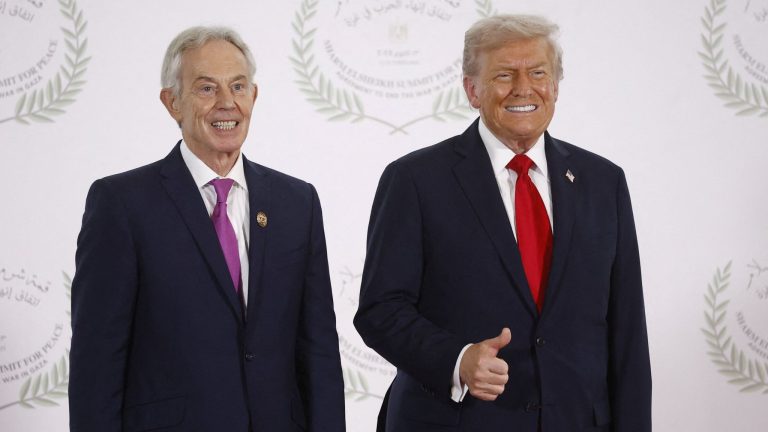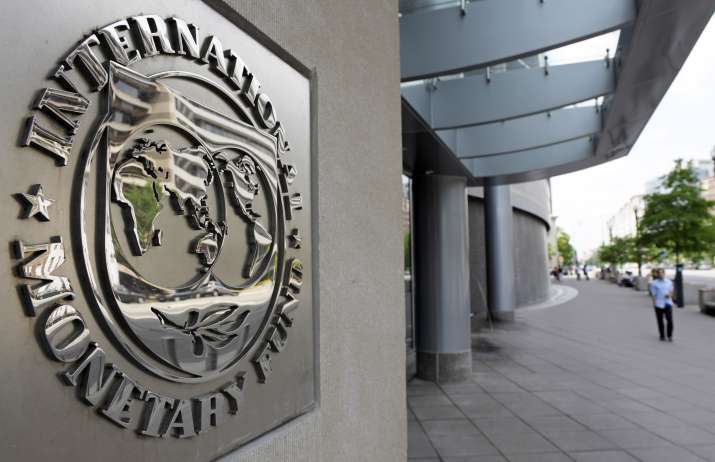
The International Monetary Fund (IMF) on Tuesday commended Nigeria for implementing decisive monetary and fiscal reforms, which it noted have begun to stabilise the economy, reduce inflation, and strengthen foreign exchange reserves.
This comes as, at the launch of its latest World Economic Outlook (WEO) on Tuesday, the IMF announced that Nigeria’s growth forecast has been revised upward to 3.9 per cent in 2025 and 4.2 per cent in 2026, driven by stronger financial conditions, a rebased Gross Domestic Product (GDP), and higher oil production.
Also on Tuesday, the Governor of the Central Bank of Nigeria (CBN), Olayemi Cardoso, projected that Nigeria’s trade surplus would hover around six per cent of GDP in the foreseeable future, reflecting a broader restructuring of the economy, a more competitive currency, stronger domestic production, and measures to reduce reliance on imported inputs. Cardoso spoke at the G24 press briefing, where he represented the First Vice-Chair, Minister of Finance and Coordinating Minister of the Economy, Mr. Olawale Edun.
Additionally, Nigeria on Tuesday reaffirmed its commitment to strengthening economic partnerships with global development agencies following a high-level bilateral meeting between the Federal Ministry of Finance and representatives of the Japan International Cooperation Agency (JICA) and the Multilateral Investment Guarantee Agency (MIGA).
Speaking at the launch of the IMF’s Global Financial Stability Report titled, “Shifting Ground Beneath the Calm,” the Assistant Director in the IMF’s Global Markets Analysis Division, Jason Wu, said Nigeria’s recent policy steps reflect stronger coordination between fiscal and monetary authorities aimed at restoring macroeconomic balance.
He said: “We have seen Nigeria take many steps to strengthen policy frameworks, especially on the monetary policy front, and we generally recommend moving toward a more flexible exchange rate regime.”
He explained that the reforms, alongside improved fiscal management, have already yielded measurable progress.
“In addition to monetary policy actions, revenue collection has improved in Nigeria, and transparency around foreign exchange reserves has strengthened.
“These have contributed to a decline in inflation from above 30 per cent last year to about 23 per cent this year, as well as stronger FX reserve positions. The direction of travel is clearly positive,” he added.
While acknowledging Nigeria’s gains, the IMF warned that Sub-Saharan Africa still faces external and domestic vulnerabilities despite signs of resilience and renewed capital inflows. Wu noted that previous boom-and-bust cycles in capital flows could recur, posing risks for economies with weak buffers.
“That said, I think Sub-Saharan Africa in general continues to face headwinds, while growth has been pretty strong during this period, where financial conditions are easy, capital flows are resuming.
It is also possible that the previous capital flow surge and then retrenchment cycles that we’ve seen before could happen, and when that happens, it will expose some of these economies with vulnerabilities, particularly when foreign investments were to retrace.
“So countries need to continue to improve the fundamentals on the fiscal and monetary policy side, but also in terms of developing more structural policies like revenue mobilisation, as Nigeria is trying to do debt management, and hopefully also support from the international community.”
Meanwhile, at the launch of the WEO, the IMF noted that across Sub-Saharan Africa, regional growth projections have also been upgraded, with output expected to rise to 4.1 per cent in 2024 and 4.4 per cent in 2025. The Fund attributed this resilience to macroeconomic stabilisation efforts and ongoing reforms in key economies such as Nigeria and Ethiopia, even as resource-dependent and conflict-affected countries continue to face significant headwinds.
Chief IMF Research Department, Denis Igan said: “We have revised Nigeria’s growth outlook upwards. For 2025, we now project GDP growth at 3.9 per cent, which is 0.5 percentage point higher than our earlier forecast. We have also upgraded the 2026 growth projection by 0.9 percentage point to 4.2 per cent.
“In fact, the 2024 growth figure has also been revised upward to 4.1 per cent, which is 0.7 percentage points higher than previously estimated.
“The upward revision for 2024 reflects the authorities’ GDP rebasing, which provides broader coverage of economic activities, including those in the informal sector that were previously underrepresented. For 2025 and 2026, the improved outlook reflects reduced uncertainty and the limited impact of US tariffs on Nigeria, given its relatively low exposure to those markets.”
On what pushed the forecast upwards, she added: “The appreciation of the exchange rates since July and stronger financial conditions due to rising investor confidence, a supportive fiscal stance, and higher oil production under improved security conditions, which has led to stronger hydrocarbon growth.
“All these factors together contributed to the upward revisions in Nigeria’s medium-term growth forecast.”
In the meantime, Cardoso, while responding to a question on global trade and Nigeria’s stance, said: “From Nigeria’s perspective, frankly, less of a problem for us. I think we were very fortunate because a lot of the things that needed to be done, we did them much earlier.
“As a result, we were able to create resilience and buffers against potential shocks. In terms of anchoring expectations, we found that those who followed the Nigerian economy were fairly comfortable.
“For us, again, oil is basically the only commodity that was so exposed, and the impact on that was relatively modest. Now we have a more competitive currency, and as a result, for once, we have a situation where we have a positive balance of trade, a trade surplus, and we expect it to be around six per cent of GDP
and remain in that range for some time.
“Basically, what is happening is a complete restructuring of the economy, with a competitive currency encouraging people to go into domestic production and, of course, discouraging imports.”
On the G24’s efforts to advance the interests of emerging economies, Cardoso noted, “It’s clear to me that under the leadership of Argentina, the chair of the G-24, we’ve certainly advanced the course with the voice of the emerging economies and been able to get a greater, a more effective seat at the table, especially with respect to the Bretton Woods institutions and getting our voices heard.
“And I think that, in itself, is a major step forward. So, of course, I expect that the very good work that has been done will be further deepened in the years ahead.”
Commenting on currency swap arrangements, Cardoso said: “It didn’t work out very well for us. That’s not to say that we are not interested in doing this. We are, and we are really at an elementary stage of putting up a framework now that our currency is more competitive, to be able to ensure that it’s a win-win for everybody.”
In a related development, Nigeria has reaffirmed its commitment to strengthening economic partnerships with global development agencies following a high-level bilateral meeting between the Federal Ministry of Finance and representatives of the JICA and MIGA.
The meeting, which held on the sidelines of the ongoing World Bank Group and IMF Annual Meetings, was led by the Minister of State for Finance, Dr. Doris Uzoka-Anite, alongside members of the Nigerian delegation.
It was gathered that the discussions at the meeting centred on advancing collaboration to attract more Foreign Direct Investment (FDI) into Nigeria, accelerate ongoing development projects, and expand support for infrastructure and private sector-led initiatives.
Uzoka-Anite reaffirmed Nigeria’s determination to leverage international partnerships to drive inclusive economic growth and development. She emphasised that the government’s reform agenda anchored on fiscal discipline, investment promotion, and economic diversification provides a credible framework for development partners to deepen their engagement.
In response, representatives of JICA and MIGA expressed confidence in Nigeria’s long-term economic outlook and reiterated their readiness to strengthen collaboration with the government in implementing strategic projects that will enhance job creation, investment inflows, and sustainable growth.
Eromosele Abiodun, Nume Ekeghe
